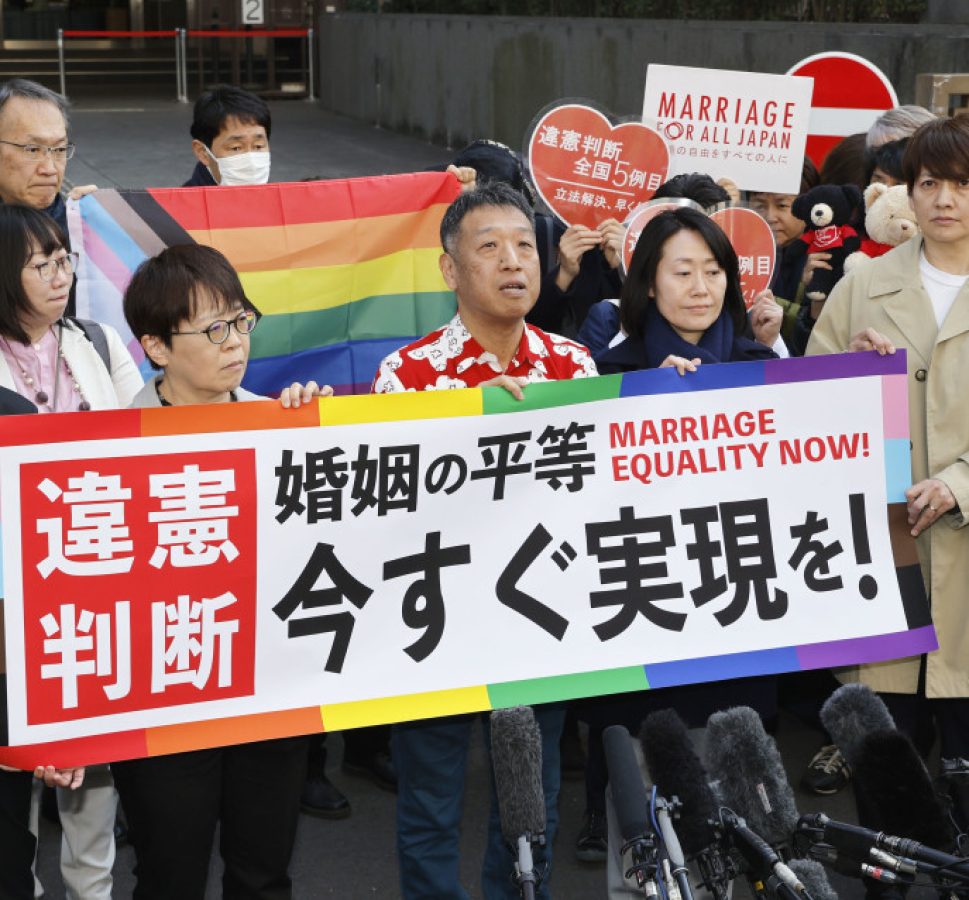
Japan is only G7 nation that excludes same-sex unions with conservative government criticised as stonewalling diversity.
A high court in Japan has ruled that the country’s ban on same-sex marriage is “unconstitutional” as pressure mounts for such unions to be legalised.
On Thursday, the Sapporo High Court said not allowing same-sex couples to marry violates their fundamental right to have a family, and called for urgent government action to address a lack of laws allowing same-sex unions.
A lower court in Tokyo issued a similar ruling earlier on Thursday, becoming the sixth district court to do so.
But the Tokyo District Court ruling was only a partial victory for Japan’s LGBTQ community calling for equal marriage rights, as it does not change or overturn the current civil union law that describes marriage as between a man and a woman.
Japan is the only member of the Group of Seven (G7) nations that still excludes same-sex couples from the right to legally marry and receive spousal benefits.
Support for marriage equality has grown among the Japanese public in recent years, but the governing Liberal Democratic Party, known for its conservative family values and reluctance to promote gender equality and sexual diversity, remains opposed to the campaign.
‘Groundbreaking’
Amnesty International said Thursday’s rulings were “groundbreaking”.
“The court decisions today mark a significant step towards achieving marriage equality in Japan. The ruling in Sapporo, the first High Court decision on same-sex marriage in the country, emphatically shows the trend towards acceptance of same-sex marriage in Japan,” said the group’s East Asia researcher Boram Jang.
“By recognizing that the government’s ban on same-sex marriage is unconstitutional, these rulings make clear that such discrimination has no place in Japanese society,” the statement said, adding that the government now needs to be proactive in moving towards the legalisation of same-sex marriage so that couples can fully enjoy the same marriage rights as their heterosexual counterparts.
The high court does not have the power to overturn the constitution.
Five previous courts delivered varying rulings in the past two years before Thursday with some upholding the current law – while raising concerns about protecting individuals’ rights – and others ruling against it.
Dozens of advocacy groups have pushed for anti-discriminatory laws. About 8 percent of the more than 120 million population in Japan identify as being a sexual minority.
Views about same-sex marriage in Japan have shifted in recent years, with some 68 percent of the population saying they favour a law legalising it, according to a 2023 survey by the Pew Research Center.
Hundreds of municipalities throughout Japan allow same-sex couples to enter partnership agreements but their rights are limited.
Partners cannot inherit each other’s assets or have parental rights to each other’s children, hospital visits are not guaranteed, and spousal benefits cannot be collected.
Last July, the government passed a “fostering LGBTQ understanding” law that stipulates “there should be no unfair discrimination” against sexual minorities, but critics argue it is not strong enough.
“The law passed by the government last year to ‘promote understanding’ of LGBTI people is not enough,” Amnesty said. “There need to be concrete, legal measures in place to protect same-sex couples and the LGBTI community in Japan from all forms of discrimination.”






